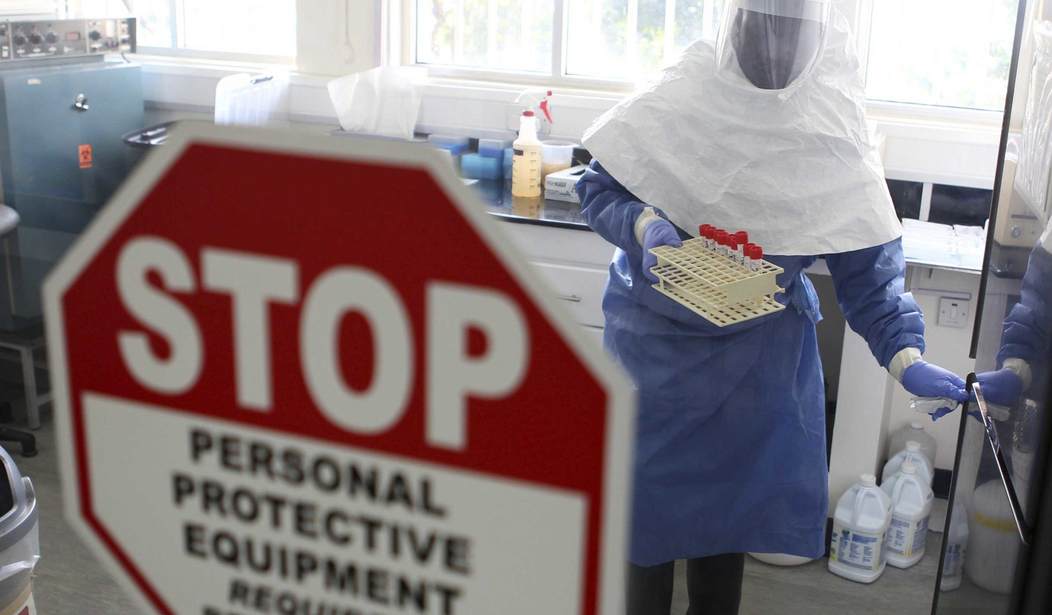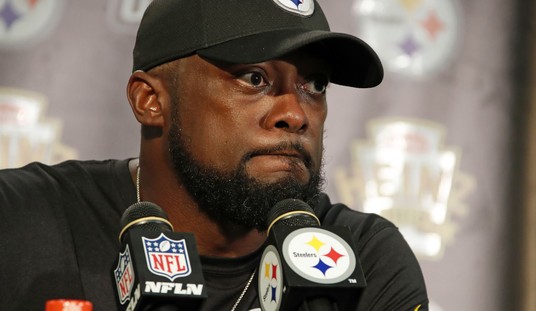WASHINGTON — A leading member of the House Appropriations Committee said he got the runaround when trying to find out what the United States government was doing to respond to the Ebola outbreak, leading him to fear that the Obama administration is unprepared for an epidemic.
Rep. Frank Wolf (R-Va.) serves on the State and Foreign Operations Appropriations Subcommittee, which funds the State Department and foreign aid programs, yet was allowed to sit in on today’s special hearing of the House Foreign Affairs Subcommittee on Africa, Global Health, Global Human Rights and International Organizations.
Called during the first week of lawmakers’ summer recess, the only other members on the dais were chairman Chris Smith (R-N.J.) and ranking member Karen Bass (D-Calif.).
“The current Ebola epidemic has claimed over 900 people since it was first detected earlier this year, and has proven to be the world’s worst outbreak of the virus ever recorded,” Wolf said. “It now appears that this alarming, contagious disease could be on the verge of spreading.”
Wolf said he received a call July 28 from Ken Isaacs of Samaritan’s Purse, the missionary organization with which Dr. Kent Brantly was working in Liberia when he came down ill. Isaacs, vice president of government relations for the organization, testified before the committee today.
The missionary group was struggling “to get guidance on protocols for dealing with returning healthcare workers from the region.”
“It appears that both the international health organizations and the Obama administration underestimated the magnitude and the scope of the epidemic,” Wolf said. “Despite well-intentioned efforts by local and international aid workers, doctors and nurses working on the ground, it seems the international community and the U.S. had been noticeably absent in helping these West African countries to get out in front of the spread of this epidemic.”
“For the first part of the epidemic, the international community simply let three of the most impoverished countries in the world deal with the Ebola threat essentially on their own,” the congressman continued. “It should be no surprise that the health systems in Liberia, Guinea, and Sierra Leone do not have the resources or the capacity to deal with this epidemic on their own. Despite early warnings from those NGOs working on the ground, there was little action taken to get out in front of this problem, and now we are seeing the consequences.”
“Nothing can bring back the lives that were lost. And even the money and personnel deployed to help may not be enough to contain the epidemic.”
Wolf said he spent much of Monday last week on the phone with the White House, State Department, Centers for Disease Control and Prevention, and Department of Health and Human Services “trying to understand just what, if anything, the U.S. was doing both to help contain the outbreak and prevent the spread of Ebola to the U.S.”
“I was concerned that no one could tell me who was in charge within the administration on this issue. No one could explain what actions would be taken to ensure the U.S. was prepared to respond,” he said. “Although more progress has been made over the last week since these conversations, it’s clear that the government is still trying to catch up.”
CDC Director Tom Frieden eventually took Wolf’s call.
“It soon became apparent that there were significant gaps in existing procedures for dealing with this. The CDC had no available registry of medical facilities capable of treating Ebola patients in the United States,” Wolf said. “There are no quarantines or travel restrictions in place. And there was concern that these gaps in the protocols and how do you deal with them.”
“…This should be a very top, very top priority of the White House, the political leadership of the nation. We know with the career people, what they are going to do, but the White House, because the American people deserve to know what their government is doing to prevent the spread of this epidemic and keep the country safe.”
Frieden told the committee that “it won’t be quick and it won’t be easy,” but they can get in front of the outbreak.
He also credited a 1995 Dustin Hoffman movie for stoking people’s fears about the outbreak.
“Ebola is one of several viral hemorrhagic fevers. There are others, but Ebola is the most feared in part because it had a movie made about it. There are others that are just as deadly,” Frieden said.
“First, we can stop Ebola. We know how to do it. It will be a long and hard fight. And the situation in Lagos, Nigeria, is particularly concerning, but we can stop Ebola.”
Deputy Assistant Secretary of State for the Bureau of African Affairs Bisa Williams also singled out Lagos as an area of concern. An American citizen working for the Liberian government carried the disease to the country via plane and died there, infecting several people in the process.
“We have to stop it at the source in Africa. That is the only way to get control,” the CDC director said. “…We have to stop it at the source through tried and true means.”
The “main drivers” of the disease in Africa have been “healthcare settings and other care-giving settings, including the family; and burial practices, where there may be practices that involve contact with the recently deceased person.”
Stopping its spread “requires meticulous attention to detail, because if you leave behind even a single burning ember, it’s like a forest fire,” Frieden added. “It flares back up.”
The current outbreak is “unprecedented” in part because “within another few weeks there will have been more cases in this outbreak than in all previous recognized outbreaks of Ebola put together.”
“This was a disease that was unknown as far as we know in that area before, and because of this it’s been a particular challenge. And the health systems in these countries are quite weak, and this also is a challenge,” he said. “Many of the cases have been in urban areas and there has been spread in urban areas. And this is something we have not seen to this extent before.”
Frieden added that the CDC’s alert level “doesn’t mean that there’s an increased risk to Americans, but it does mean that we are taking an extensive effort to do everything we can to stop the outbreaks.”
He panned the idea of relying on the experimental serum that has shown such promise in putting the two American healthcare workers on the road to recovery, saying “the plain fact is that we don’t know whether that treatment is helpful, harmful or doesn’t have any impact.”
“And we’re unlikely to know from the experience of two or a handful of patients whether it works. We do know that supportive care for patients with Ebola makes a big difference.”
The director said it’s “certainly possible that we could have ill people in the U.S. who develop Ebola while here after having been exposed elsewhere. It is possible that they could spread it to close family members or to healthcare workers if their infection is not rapidly identified.”
“But we are confident that there will not be a large Ebola outbreak in the U.S.,” he added. “…We do face in this country a perfect storm of vulnerability with emerging infections like Ebola, resistant infections… intentionally created infections which remain a real threat. But we have unique opportunities to confront them with stronger technology, more political commitment and success stories on real progress from around the world.”
“…An outbreak anywhere is a threat everywhere.”
Wolf asked Williams for cables showing the dates that U.S. embassy staff in the affected countries notified Washington of the outbreak, and how high up the chain those concerns were raised.
Williams said she didn’t have that information at hand but would try to get it for the congressman. “We’ve been aware of this for a while now and working on it,” she said.
Isaacs said one of the challenges the missionaries faced in trying to contain the outbreak was the threat of violence when they tried to implement sanitary burial procedures, such as discouraging the tradition of kissing a loved one’s corpse.
“Something significantly more is needed,” he said. “I don’t think putting a poster on the wall saying ‘Ebola kills’ is gonna do it.”
Liberia, Isaacs opined, just cannot fight the outbreak alone.
“There’s no contacts [of sick people] being run down in Liberia,” he said. “I just simply do not think they have the capacity.”
Meanwhile in the States, the missionary chief noted, “I look at the Drudge Report — it can drive a lot of panic.”









Join the conversation as a VIP Member